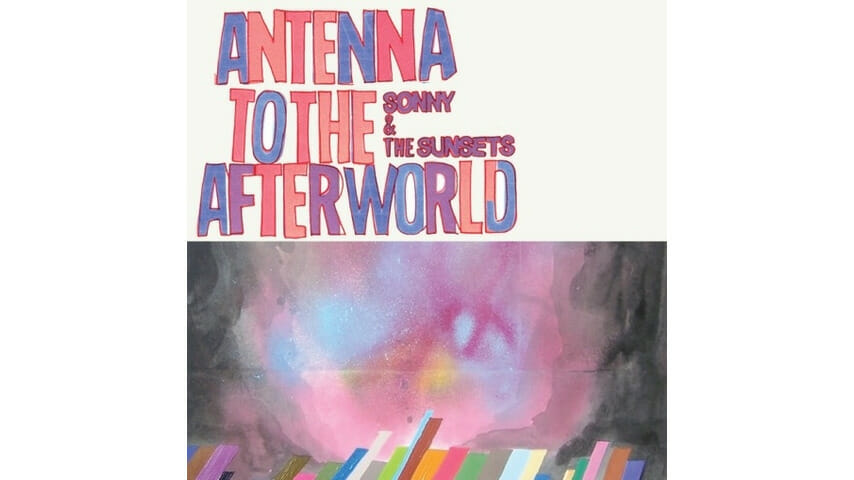Sonny and the Sunsets: Antenna to the Afterworld

A musical chameleon, Sonny Smith remains distinct in each of his guises, merely changing colors while retaining his unique shape.
To say that Smith, a man who—among other musical adventures—wrote and recorded songs for 100 bands he conjured from the depths of his weird mind, has thus far swung from irreverent garage-pop to fractured country-western is to oversimplify the restless eclecticism in his records.
Perhaps, at least with his last two records, it’s best to consider Smith’s stylistic shifts less as whims and more as fitting vehicles for the subject matter of his songwriting. Longtime Companion set the palette of country-rock beside Smith’s easel for a work that chronicled his breakup, the long somber brushstrokes making for a comparatively traditional record.
Less expected, but no less fitting, is the spacey blend he creates for an album that ponders life and death, and what connection might be possible between the two. Antenna to the Afterworld is bouncy, synthy, funky, a groove-rock album that nods a bit toward, if anybody, Beck, a fellow peddler of musical variety. It’s a little new-wave, a little psychedelic, a little ethereal and more than a little out there as Smith tackles mortality from an other-worldly angle, using the great wide universe as a stand-in for the afterworld.
-

-

-

-

-

-

-

-

-

-

-

-

-

-

-

-

-

-

-

-

-

-

-

-

-

-

-

-

-

-

-

-

-

-

-

-

-

-

-

-








































